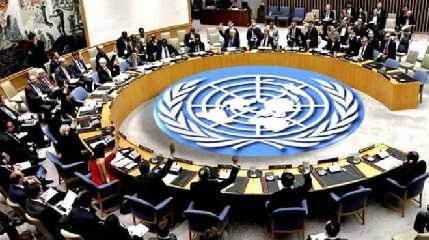
KUALA LUMPUR, April 29 (NNN-Bernama) — Malaysia urges the exercise of the veto power by permanent members of the United Nations Security Council (UNSC) to be regulated and will continue to work towards a comprehensive reform of the Council.
Foreign Minister Saifuddin Abdullah said Malaysia supported and joined the consensus on the latest resolution A/RES/76/262, adopted on Tuesday (April 26), in line with its position to strengthen the relationship and coordination between the General Assembly and the Security Council on peace and security.
The resolution provides a mandate to the President of the General Assembly (PGA) to convene a formal meeting within ten working days of the casting of a veto by one or more permanent members of the Security Council and to hold a debate on the situation in which the veto was cast, according to a Foreign Ministry (Wisma Putra) statement Friday.
The resolution would also allow discussions on issues that were vetoed at the Security Council to ensure greater transparency and accountability over the use of the veto power.
“The adoption of the resolution marks a positive development regarding the use of the veto by the Permanent Members of the Security Council. It represents a minor yet significant improvement to the working methods of the Council.
“Malaysia considers the usage of the veto as undemocratic as it is often being used unjustly to block the wishes of the majority.
“As such, Malaysia has been among the countries that have consistently called for the abolishment of the use of the veto in conformity with the principle of sovereign equality as envisaged in the UN Charter.
“Alternatively, Malaysia urges for the exercise of the veto to be regulated. In this regard, Malaysia will continue to work towards a comprehensive reform of the Security Council,” the statement quoted Saifuddin as saying.
The international media reported the UNGA decided on Tuesday to automatically meet within 10 days if the veto is used in the Security Council by one of its five permanent members.
China, France, Russia, the United Kingdom, and the United States have the power to veto Security Council resolutions, enshrined in the UN Charter — a right accorded to them because of their key roles in establishing the United Nations.




